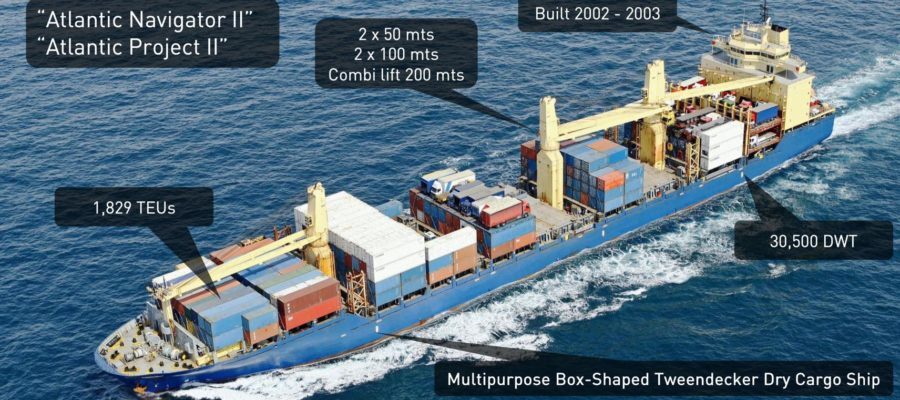Interview with
Mr. Rick Shannon
Board Member

First of all, Rick, tell our readers a bit about ARRC and yourself. In particular, how did you get into shipping in the first place? I also believe that you set out a couple of clear demands before joining originally. Tell us more.
Atlantic Ro-Ro Carriers, Inc. was incorporated in New Jersey in 1995. We started the service using two small vessels with ro-ro capability. Over the past three years, we have upgraded our vessels to carry more variants of cargo. This was in order to keep up with the changing cargo needs of the trade.
Newer, larger, multi-purpose vessels were brought on to the service to accommodate cargo demands as well as increased ports of call.
As for myself, I have more than 40 years in the transport industry, holding senior positions in world-wide shipping companies. My career covers most of the major trade lanes in the world, including South-Central America, Europe, the Far East, and Africa. I have extensive experience in the Middle East including Iran, Iraq, Saudi Arabia, Kuwait, Dubai, and Turkey. I have headed up logistics projects and shipping for the building of ports, airports, and buildings, with complete turn-key responsibility throughout the Red Sea and the Persian Gulf. I lived and handled services between the USA, Puerto Rico, and the surrounding islands from 1967-1970.
I entered the Soviet Union as US General Agent for all 17 Soviet Union ocean shipping companies in 1991. In the early 1990’s, the Soviet Union was going through the turbulent times of privatization, and the basic infrastructure in the USSR was not compatible with western systems. This was the period of private entrepreneurs taking over State-owned properties, and a period of mayhem followed.
A new group formed in 1995—Atlantic Ro-Ro Carriers, Inc., and I was approached to come on board as their first president. During negotiations, I was told they had an idea to do something that had not been done since the USSR breakup in 1991—to create a company in the Russian trade that was completely compliant with US regulations as well as those in Russia and any other ports they would expand into. This was not an easy task to achieve as that philosophy would eliminate their access to major cargo moves. Also, it would be a liner service versus the usual tramp operations that traded there or transshipped over an EU port.
ARRC also had staff that I classified as “maritime families”, and I knew many from my earlier exposure in Russia.
During the negotiations, ARRC also agreed to use the same accounting and legal firms I had used since 1986. After one day of negotiations, I came on board as their first president.
I understand that your main trade lane is between Russia, North West Europe, and the U.S. East & Gulf Coasts but that your group also runs a regular service into the Levant and between the US and South Africa. I have seen your impressive leaflet, (there will be a link to it here) but can you elaborate about how the services originally came about?
ARRC key personnel had a background in this area from the Soviet times. As a result, they had heavy exposure to almost every trade lane in the world as the Soviet Fleet was the largest in the world with over 2,500 vessels of all types. So, they had relations with all of the trade lanes we added onto our ARRC services beyond Russia. As sanctions started to impose greater restrictions to US-Russian cargo, we simply expanded into regular port calls in Antwerp/EU as well as in Africa, areas that we knew quite well from previous activity for many years.
When trade lane cargo gets reduced, many larger companies (having 100+ vessels) run into financial difficulty, usually leading to collapse. With our smaller vessel fleet, we usually just added another port on route to our normal destinations.

Breakbulk shipping has seen hard times as it seems to fluctuate according to trade deals, embargoes, and friendships between countries that come and go. In the case of your link with the Baltic states and Russia, would you say that recent times have been difficult in the US/RUSSIA trade? How is the situation at the moment? Regarding the port situation in Russia, does your group have priority when coming to port? We hear from others that they sometimes face trouble, in particular in St Petersburg.
Certainly, recent US-Russian trade has been difficult. You mentioned sanctions (such as embargoes) being a major issue. True, but since we are a liner service with dedicated vessels calling at St. Petersburg and not transshipping over an EU port, we are a preferred carrier for certain clients and specific cargoes. Our main competition would be tramp operations with charters demanding minimum cargo per shipment. With ARRC, we can, and do, take any volume of breakbulk/project cargo, be it 100 Revenue Tons (RTs) or 20,000 Metric Tons (MTs). This means that shippers do not have to accumulate cargo to make certain minimums. While shippers may get a lower ocean rate for moving, say, 20,000 tons, such quantities also tie up funds for long periods of accumulation, terminal space, storage charges, etc.
This can be a critical point. Shippers who must accumulate the larger minimum cargo, risk having their contracts restricted due to increased sanctions during their accumulation time. They also risk drayage to a terminal, then having to remove their cargo if the USA, for example, implements a new sanction on their product or receiver.
Some letters of credit also restrict moving cargo over a transshipment port where EU Customs may hold cargo already released by US Customs once discharged at their port. ARRC does not discharge cargo destined for St. Petersburg if we call at an EU port on route to STP.
You also asked about issues with the Port of St. Petersburg. ARRC has been calling at St. Petersburg for the last 25 years on a regular liner basis, and we have had no major delays. Although we cannot say we have preferential berthing, the 25 year relationship and familiarity with our staff also goes back many years before ARRC.
However, in Houston, ARRC does have preferential berthing, and our ships are always given priority berthing. That gives us and our shipper/receivers substantial savings and, most importantly for our accounts, no delays on release of cargo.
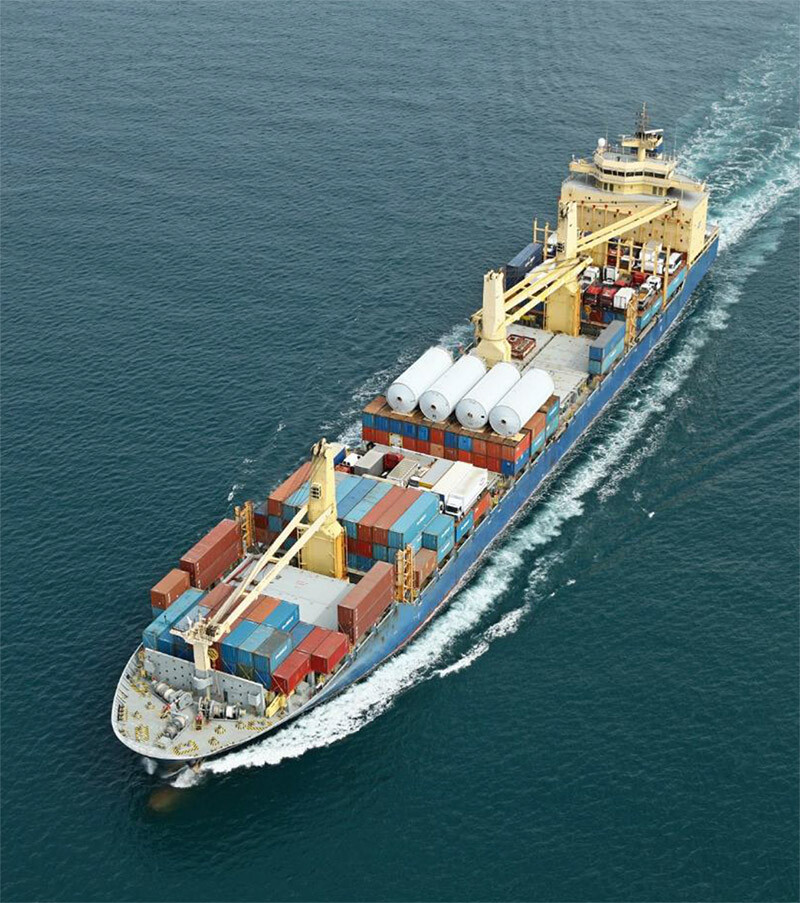
Which types of containers can you accept on board? IMO? SOC? Your own? A mixture of several?
We absolutely accept IMO and SOC containers. Actually, ARRC is the only carrier that is licensed to carry HEU-LEU to the US Eastern Gulf Coast from Russia. This was an agreement between the U.S. and Russian governments which signed off on a 20-year contract in 1993. Since that time, there has never been one accident or incident. This is a product that is responsible for supplying 10% of the electricity for the US lighting system and nuclear plants. For the last 25 years, we have had special agreements with the US Customs and Border Protection (CBP) and terminals to handle this cargo, and our crews are trained on an ongoing basis to meet all standards.
Note page 15 of the CISN outline of our services: we own/operate a fleet of over 3,000 TEU’s and are licensed to carry all dangerous cargoes. We also accept SOC, and our vessels have a lifting capacity of 195 metric tons.
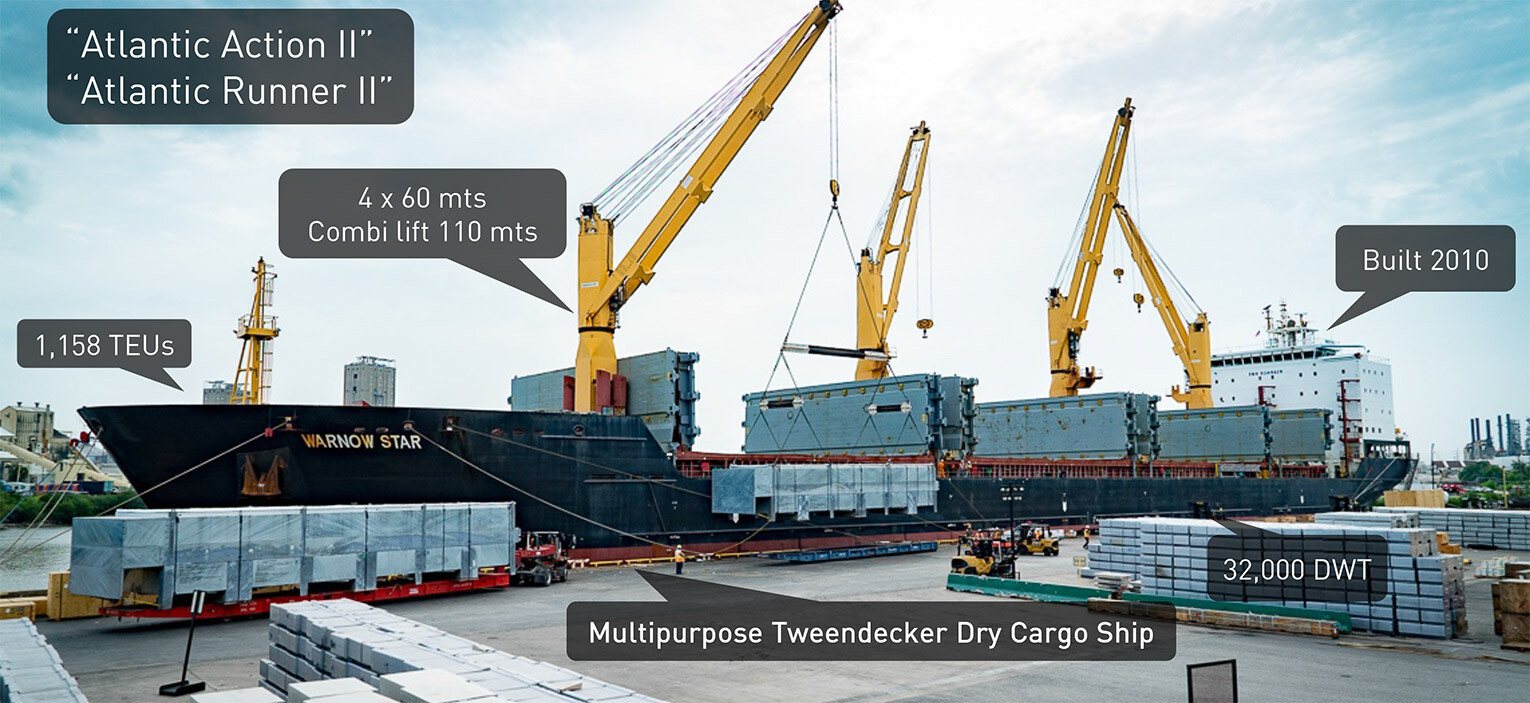
Many shipowners opt to have their “own” agencies representing them abroad. What is your policy concerning this, and how do you generally cooperate with project freight forwarders? We have seen in recent years that some breakbulk shipowners now opt to “go direct” almost all the time when it comes to the bigger shippers. I believe many of our readers would like to know your stand on this.
While it is not directly or specifically outlined, as mentioned earlier, our agents have been with us long term due to agreements worked out a long time ago. Our agent in Chicago has been with us for the last 25+ years, and I believe Protos, also.
You mention that some of the breakbulk shipowners now opt “to go direct” when it comes to the bigger shippers/forwarders. Quite true, and I see now that many of the major lines, container operators especially, are offering many of the services that forwarders had always performed. As we all know, some of the major carriers and large forwarders have adapted “one stop shopping” that allows shippers/forwarders to call a single party for the booking, warehousing, trucking, costs, receiving cargo, inland transportation, certificate of origin, payments, etc. Basically, they seem to have the ability to absorb all the functions that smaller forwarders always performed.
In addition, due to the requirements of the carrier/terminals, many of the large ocean carriers will also supply the technology interface that is required. Again, the carrier may replace a forwarder/broker, and this seems to be happening.
Forwarders have always been part of our base cargo for many years, and our philosophy is to be neutral in those areas.
With agency agreements we try to accomplish a few things that work for both agent & principal as often both parties have established relations with the same clients. While being in a restrictive market such as Russia, naturally we have relations for long periods of time but we also realize that although we have good relations with major clients, we cannot always service with a physical face/face relationship.
Also on certain moves even if they were House A accounts there are still services an agent would have to perform and be paid for. We normally will first review our active accounts like “A” House accounts. Second we establish an account list by name, analyze our activity or inactivity with that client and come up with a commission that works for the agent and principal.
So far, we really don’t wind up with many disputes or different opinions as, having been an agent in many trade routes ourselves, we realize if the agent does not make a reasonable profit it will not work and we both have lost time and a chance to form an agent relationship.
As I said earlier, we try to come up often, not with just a general percentage on everything, Russia is a good example where a relationship, when established, you want to keep on stable footing. Also, it is common that based on Terms of Sale, control could be in Russia, where we have our own staff, mostly long term employees.
We secured an account last year for about 7,000 RT where they had been moving the freight Russia-Houston then inland USA. However, the Russian shipper, who had control, would not make any moves without approval by their Miami receiver that arranged the release from the pier, trucking etc. The receiver estimated to maintain his present costs ARRC would have to drop our rates which, overall was about $10 higher than his overall cost STP-final destination USA with his present costs.
The cargo, based on existing rates would not be worth-while for us to take that kind of a hit on. We worked with our stevedore and Terminal and at the end of the day we dropped our ocean rate $5/mt, the terminal dropped their cost (to us) $3 per ton, and the stevedore dropped his rates $2 a ton.
Working jointly we were able to come up with rates/service that made us competitive and win the cargo. We are flexible on dropping our rates or increasing them to accommodate forwarders-shippers or agents.
This is just an overview with a few circumstances of our trade lane being a little different than most, and it cannot only be done by territorial designation. We, as I said, have no problem paying a commission wherever it makes sense. We don’t hesitate to give percentages on cargo we may already be handling but do not go with a blanket territorial commission.
Some of the clients we have already tied in with s/c usually tied in to December 31 to make all commitments like minimum volume etc. As we progress can refine some of the issues as needed.
ARRC maintains our own staff in most ports. We have about 40 of our own staff in St. Petersburg, five in Moscow, 10 in Odessa, 25 in Montreal, eight in New Jersey, and five people in Houston.
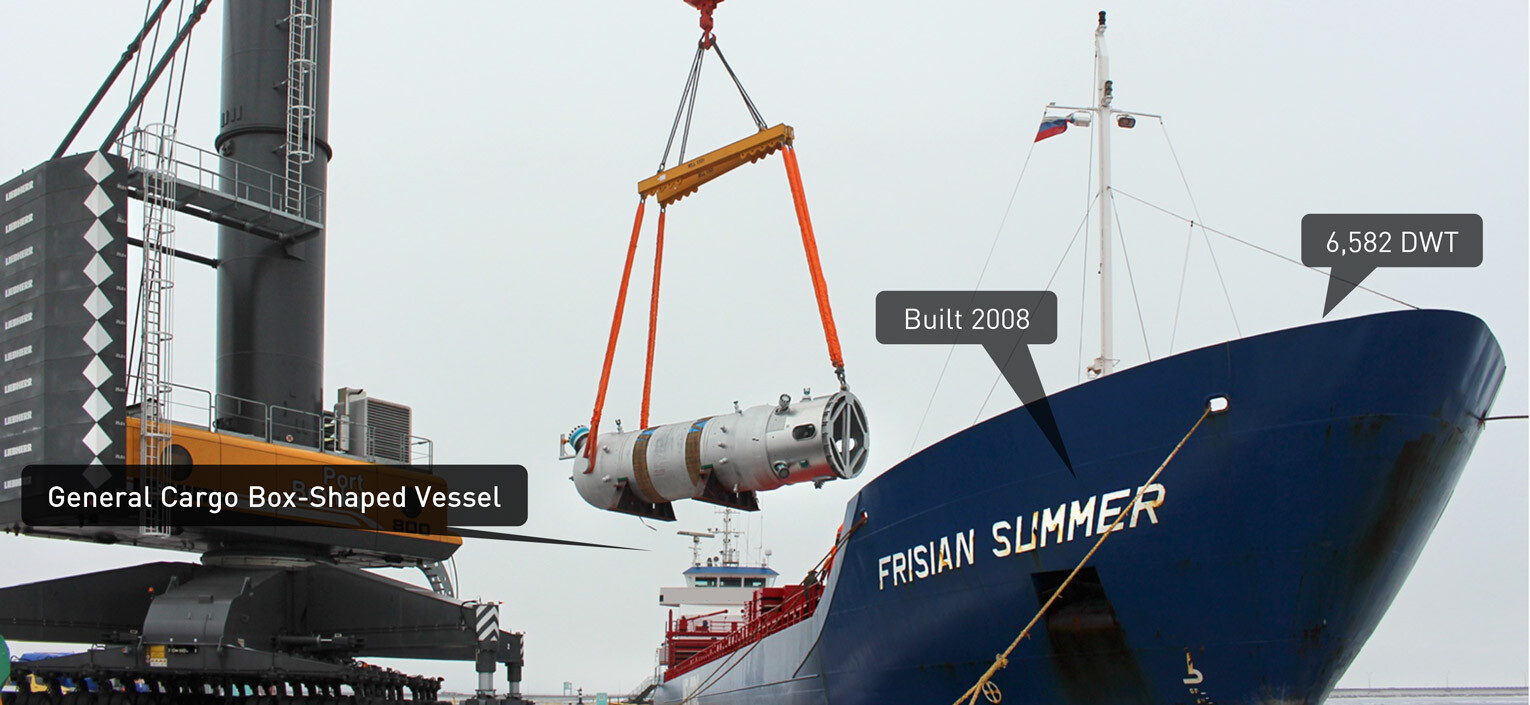
Who owns ARRC?
ARRC has been a private USA company since our inception in 1995, and we have had the same owners since our start.
Looking into your own crystal ball, what do you see with regards to breakbulk shipping in/out of the markets you serve, and could you envisage opening new routes, too?
Russia-USA: While import from Russia is still holding strong, export is down. There is a strong indication that the export will pick up after the November 3rd Presidential election. Most indications are positive . We attend many of the Department of State & Commerce activities in Washington, and this is what we hear. Despite media comments, no doubt both Russia and the U.S. want trade to be normalized and strengthened. Trade is a powerful tool for political pressure, but we have seen the sanctions take a toll on relations. As a result, many of the sanctions put in are either shortly thereafter taken off the overall sanction list or continually extended under pre-sanction provisions.
We are always open for new trade routes, but as with all breakbulk operations, we look for a base cargo to allow a new route to have some financial stability.
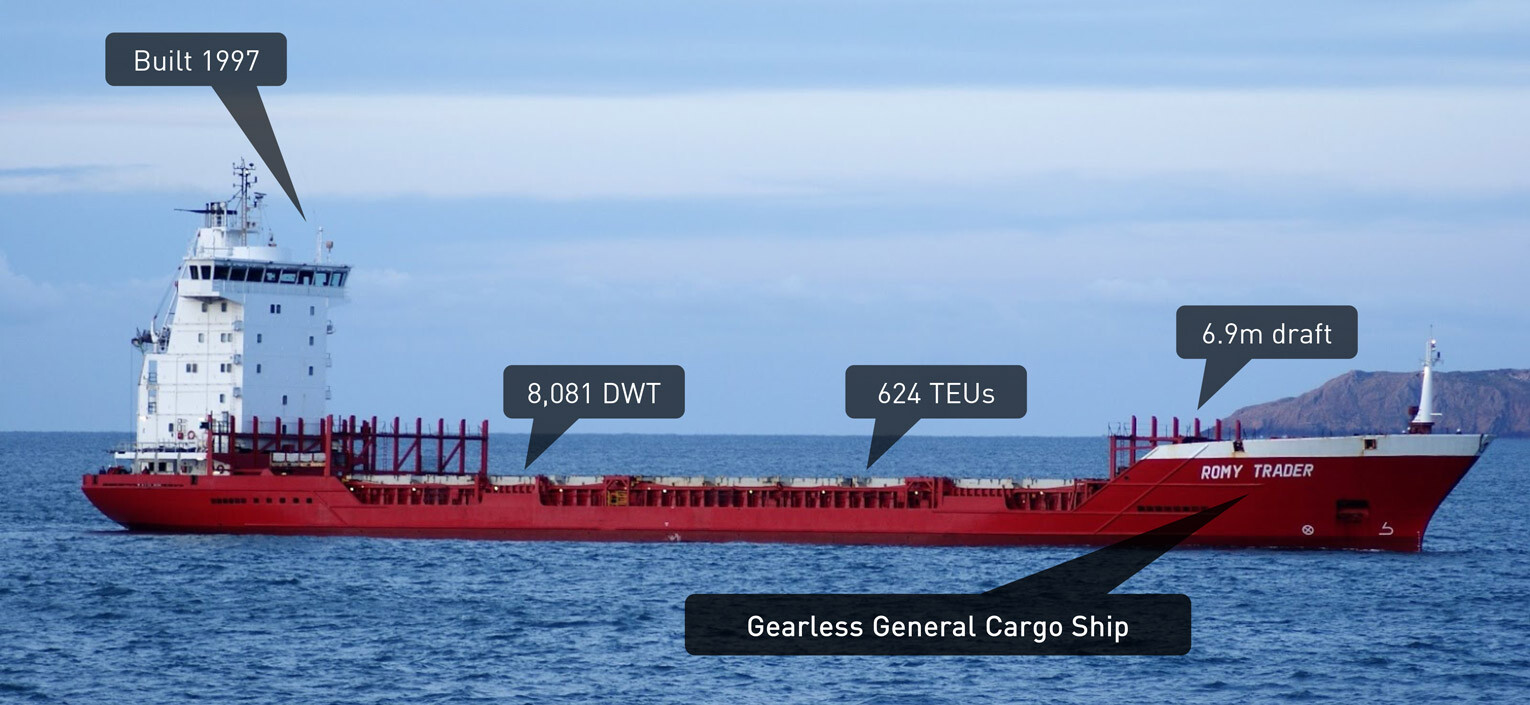
How is it best to get in touch with you?
Atlantic Ro-Ro Carriers Inc.,
95 River Street, 3rd Floor
Hoboken, NJ 07030
Tel: 201-356-2300 Direct: 201-356-2310 Fax: 201-356-2299
Email: ricks@arrcm.com
Web site: www.arrcm.com

Lastly, where are the shipping rates, etc. being decided or would local offices/agents have their own decision-making power?
Each local office does have the ability to quote directly based on a matrix we give them. Otherwise, central pricing would be unable to cope with the volume. However, should a local office run into an issue, Central Pricing or the senior person in the office of origin will call ARRC Headquarters to see if any flexibility is possible for the original quote.
Please keep in mind that we often get as many as 10 forwarders/NVO-OTI all calling/bidding on the same cargo, and according to our U.S. rules, we must be uniform in our quotes. However, upon a firm commitment from whoever is awarded the cargo (forwarder, etc.), we can adjust the quote for the firm booking or Service Contract.
Freight payments/receivables are controlled by our central financial programs that allow us to monitor all payments or receivables before the release of the cargo. (as per our FMC Tariff)
We have strict Compliance Policies and a Code of Conduct. This is also one of the reasons we did not use agents in Russia but went the route of our OWN personnel. We preferred not to farm out those requirements to an outside entity where we would not have total control of the activity.
Additional resources:
A bit about the history of ARRC Line
CISN Shipping Group Introduction

